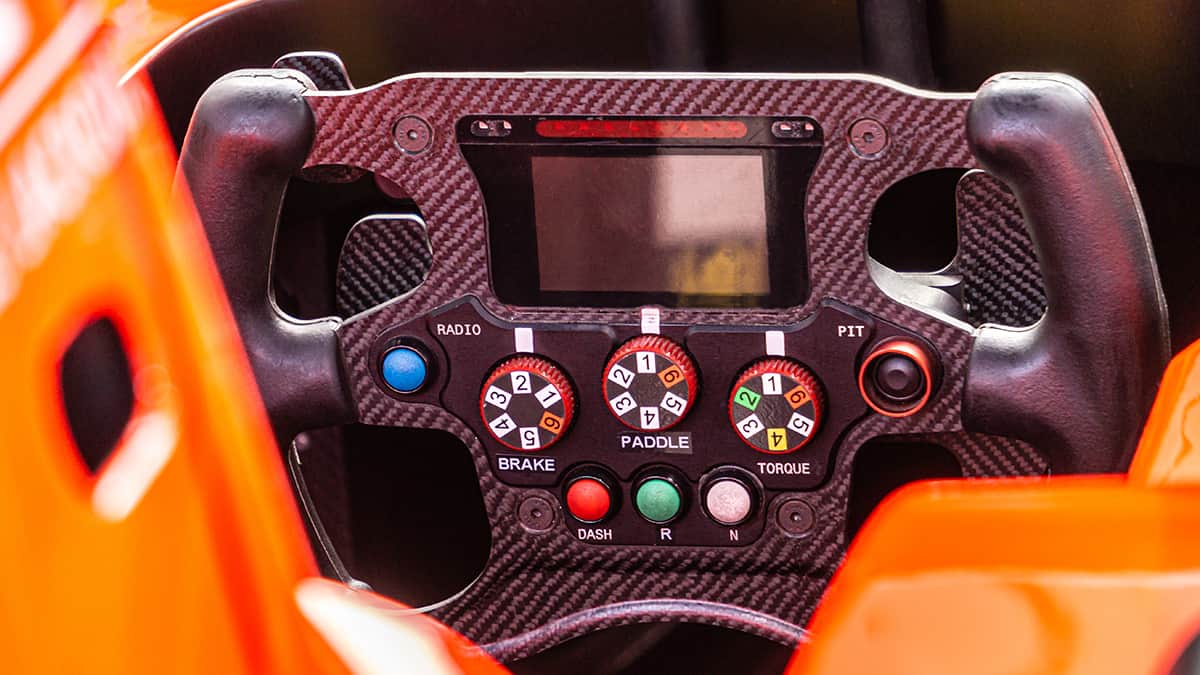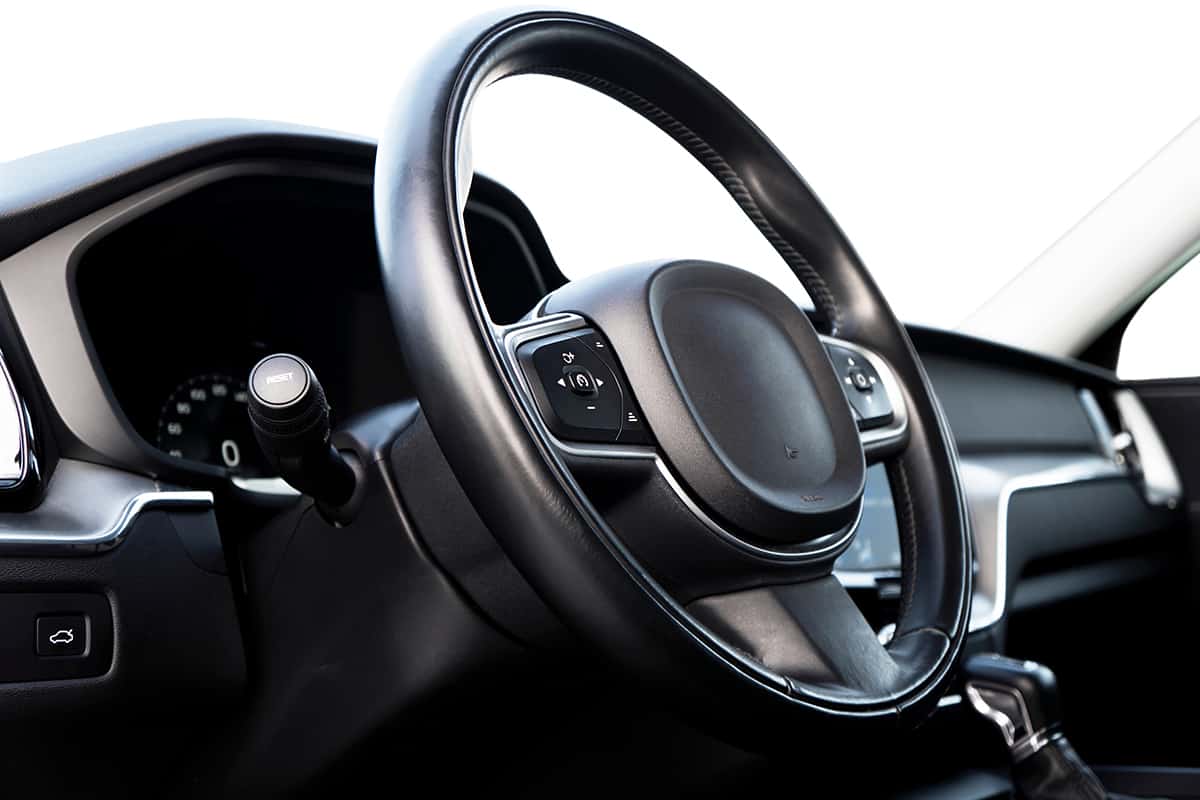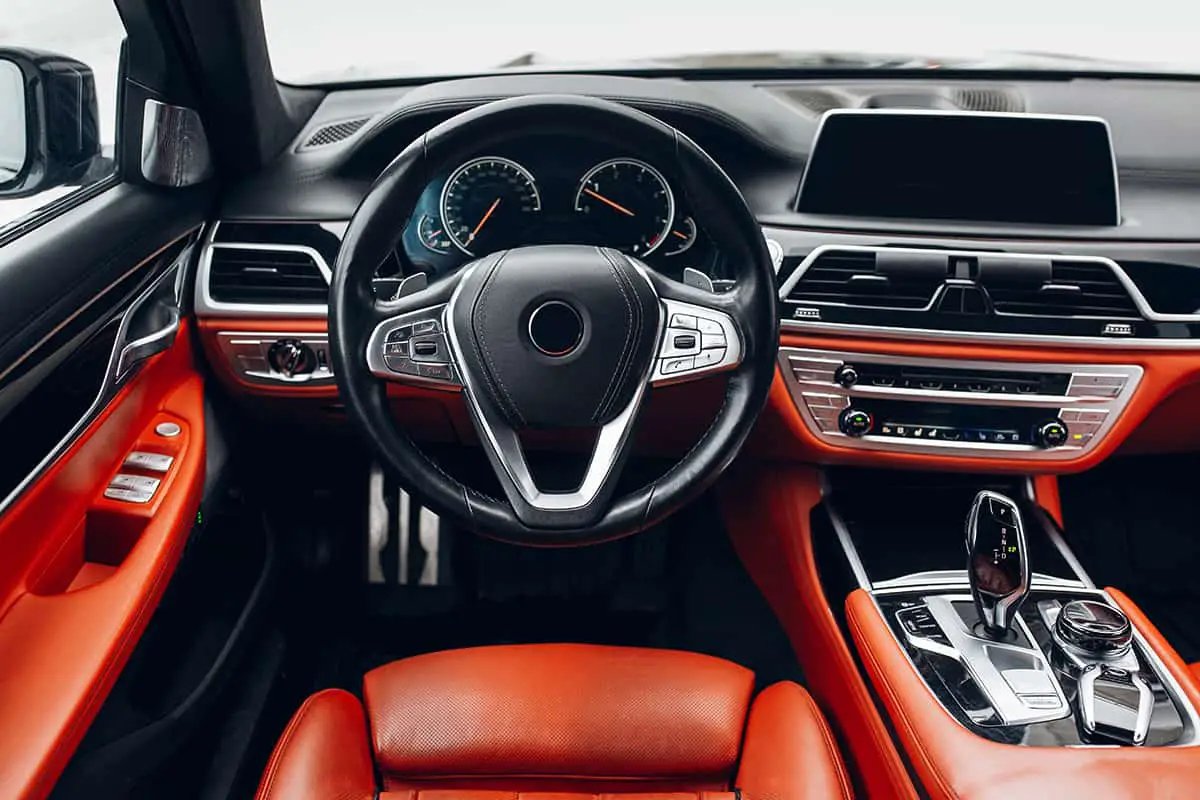Steering wheels dictate not only the direction we travel but also greatly affect drivers’ comfort and handling experience. They come in various sizes, and each size carries its own implications for vehicle control, driver comfort, and overall driving experience.
Typically, the diameter of steering wheels ranges from 14 to 18 inches. The size selected can vary based on personal preference, vehicle specifications, and driving conditions.
This guide will delve into the world of steering wheels, examining the significance of size, how it influences driving, and specialty steering wheel sizes.
The Fundamentals of Steering Wheel Sizes

When talking about steering wheel size, we usually refer to the diameter—the distance from one side of the wheel to the other, passing through the wheel’s center. It’s the most significant measurement and is typically taken in inches.
For some sportier models or unique designs, the ‘dish’, or the distance between the wheel’s mounting pad and the wheel itself, can also be important. However, in the context of standard cars, the diameter is the primary consideration.
Standard Sizes and Variations
Steering wheel sizes generally range between 14 to 18 inches in diameter, with the average size for cars being about 15 inches. These dimensions have been established based on ergonomic studies and average driver preferences to optimize control and comfort.
Smaller wheels, closer to the 14-inch end of the spectrum, are commonly found in compact cars and sports cars. They allow for a sportier feel and quicker response but may require more effort to turn. Larger wheels, closer to the 18-inch mark, are usually installed in larger vehicles like trucks or SUVs. These offer easier turning but may reduce the vehicle’s responsiveness.
The Influence of Vehicle Type on Steering Wheel Size
The type of vehicle plays a significant role in determining the size of the steering wheel. As mentioned, compact and sports cars generally have smaller wheels, while trucks and SUVs usually have larger ones.
However, this isn’t a hard and fast rule. The design philosophy of the vehicle, as well as its intended purpose, can influence the size of the steering wheel. For example, a performance-focused sports car might have a smaller wheel to enable quicker responses, even if the car itself isn’t small.
Conversely, a luxury sedan might have a larger wheel, even though the vehicle isn’t particularly large, to prioritize ease of driving and comfort over sporty responses.
Decoding the Impact of Steering Wheel Size
Steering wheel size can greatly enhance your driving experience and allow you to customize it based on your preferences and requirements. It is a critical element that influences vehicle control, driver comfort, and steering effort.
Effect on Vehicle Control
Vehicle control is a fundamental aspect of driving that’s directly affected by steering wheel size. A smaller steering wheel offers a more responsive feel and quicker handling. It allows the driver to turn the car more with less movement of the hands. This is why smaller steering wheels are often found in sports cars and performance vehicles—the quick responses they offer are a significant advantage when precise, responsive handling is required.
On the flip side, a larger steering wheel makes for slower responses and requires more hand movement to turn the vehicle. However, it offers a more relaxed driving experience, ideal for cruising or long drives, which is why they’re typically found in luxury cars, trucks, and SUVs.
How Size Affects Driver Comfort
The size of the steering wheel greatly influences driver comfort. The size needs to be a good fit for the driver’s hand size and arm length to ensure a comfortable grip and reach.
A smaller steering wheel may be more comfortable for drivers with smaller hands, as they can grip the wheel better and maintain control with less effort. However, a steering wheel that’s too small might cause strain over longer drives due to the increased steering effort required.
A larger steering wheel can offer better comfort for drivers with larger hands or longer arms, providing a broader grip area. However, if a wheel is too large for the driver, it can be cumbersome and lead to discomfort, as it may require the driver to overreach.
The Influence on Steering Effort
The effort required to steer the vehicle is another aspect impacted by the steering wheel’s size. Given the smaller leverage it provides, a smaller steering wheel requires more physical effort to turn. Conversely, with its increased leverage, a larger steering wheel makes for easier turns.
It’s worth noting that power steering systems, standard in most modern cars, significantly reduce the steering effort required, irrespective of the steering wheel size. However, the size can still affect how the steering feels and responds.
Specialty Steering Wheels and their Sizes
Specialty steering wheels cater to specific driving conditions, vehicle types, or driver preferences. These steering wheels vary in design, material, and size.
Racing Steering Wheels

Racing steering wheels are built for performance and speed. They are designed for a firm grip, rapid response, and high control—all crucial elements in racing scenarios.
Typically, these wheels are smaller in diameter, usually between 13 to 14 inches. This smaller size enables quicker and more precise responses, giving the driver an edge in high-speed, competitive driving scenarios. Moreover, racing steering wheels often feature a flat-bottom design for better leg clearance, allowing a quicker movement between the pedals.
Luxury Car Steering Wheels

Steering wheels in luxury cars are designed with comfort, aesthetics, and convenience in mind. They are often larger, usually between 15 and 16 inches, to provide an easy, relaxed driving experience.
These steering wheels are typically wrapped in high-quality leather for a comfortable and luxurious feel. They often incorporate additional features like heating for colder climates and integrated controls for features like audio, cruise control, and more.
The design and aesthetics of luxury car steering wheels also tend to be more elaborate, often with the carmaker’s logo prominently displayed and detailing that matches the car’s interior.
Off-Road Vehicle Steering Wheels

Steering wheels for off-road vehicles, such as 4x4s and SUVs, are built to handle rugged terrain and provide firm control over the vehicle. They are typically larger, around 16 to 18 inches, to offer a higher degree of leverage, making it easier to steer on difficult terrains.
The materials used are often robust and durable, like reinforced plastics or metals, and the grip surfaces are designed for firm grip even in wet or muddy conditions. These wheels often feature a deep dish design for better control and comfort during extended off-road drives.






